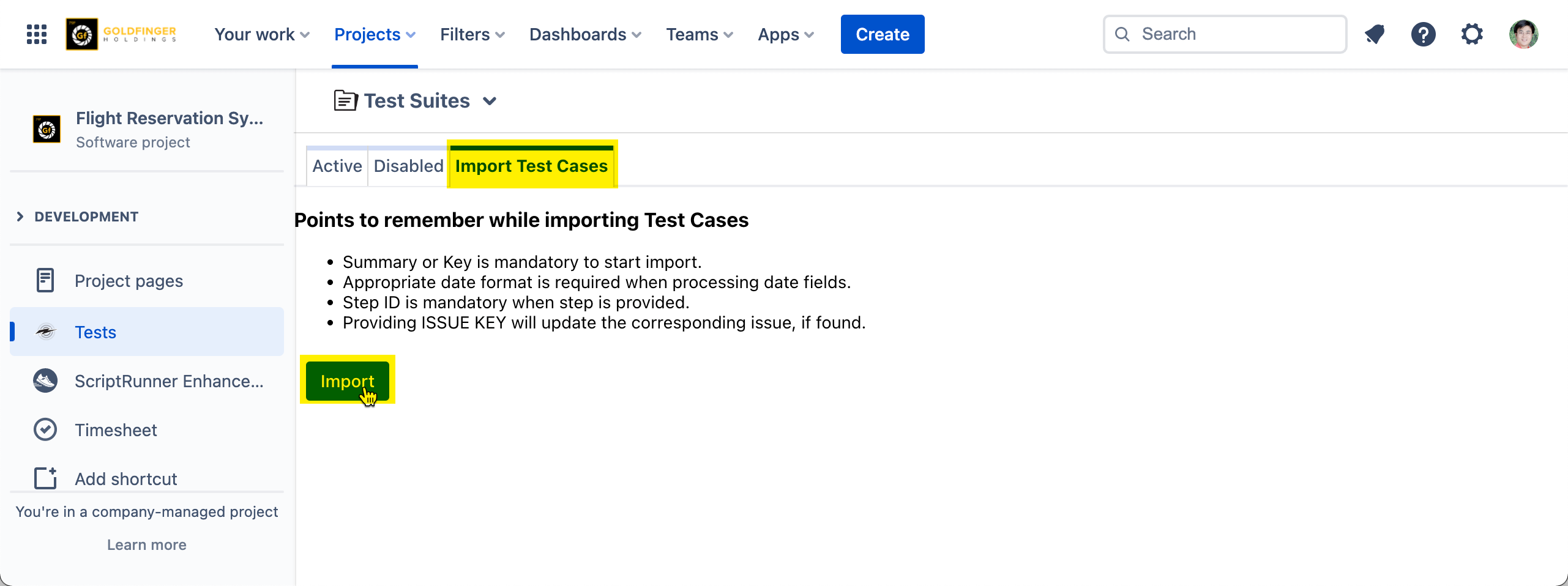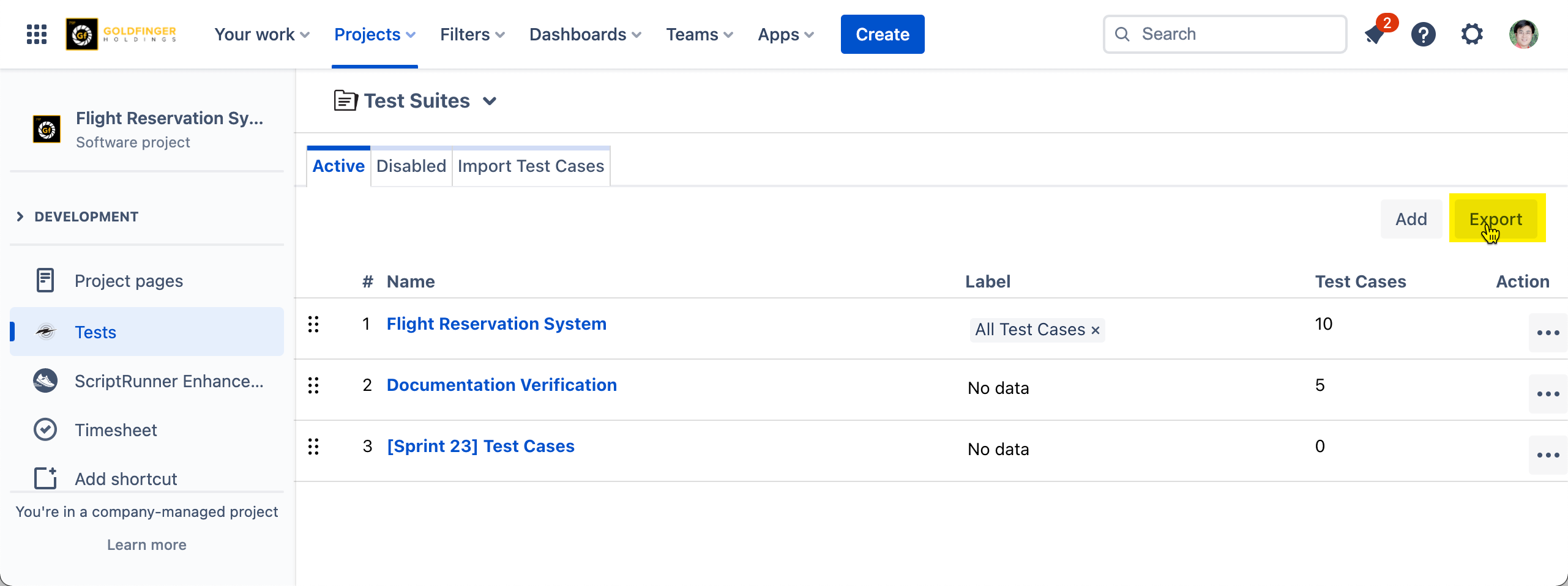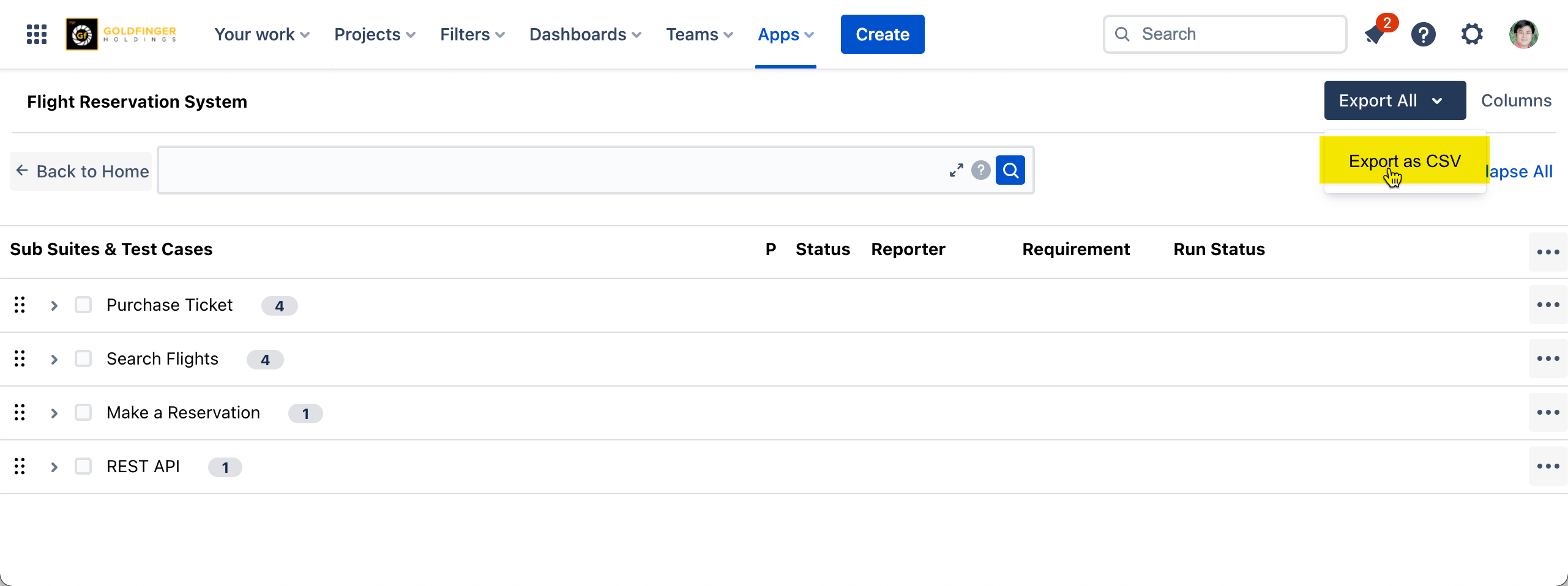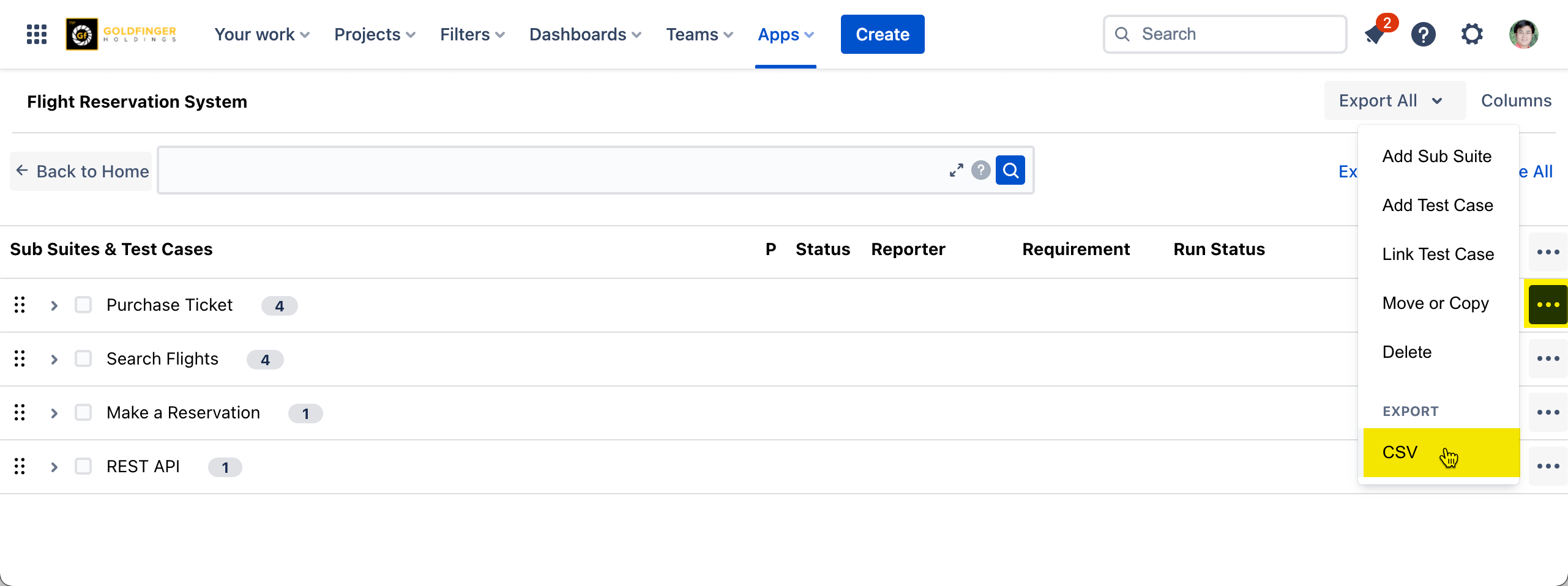Test Case - Import and Export
TestRay supports importing multiple test cases via CSV format, it helps when migrating existing test cases you might have in Excel or other test management tools.
As per Jira’s design, to ensure add-on have proper permission to complete issue import, the atlassian-addons-project-access role will be assigned to all of the permissions in project scheme automatically. Please DON’T remove it from project scheme, otherwise import will be failed due to lack of permission.
Import Test Cases to a Jira project
Launch a Jira project and then navigate to 'Tests->Test Suites->Import Test Cases TAB', following the steps in the page to complete your import.

Points to remember while importing Test Cases
Summary is mandatory to start the import.
Appropriate date format is required when processing with date fields.
Use the syntax that complies with the Java SimpleDateFormat
Example: set date format to yyyy-MM-dd h:mm a if you are going to import date time value as 2030-01-01 12:00 AM
Step ID is mandatory when a step is provided.
Providing ISSUE KEY will update the corresponding issue, if found. Existing Test Steps will be replaced by the ones in CSV file.
Specify test suite path in Test Suite column if you want to import test cases with test suite associations.
If test suite path specified in import file cannot be found from your project, it will be created from import file.
You can import test cases with multiple test suites by entering each test suite in a separate column.
Specify requirement issue key if you want to link test case to existing requirement issue during the import.
You can import test cases with multiple requirement links by entering each requirement key in a separate column.
Specify estimate value if you want to create ‘Estimate’ value during the import.
The unit of test case ‘Estimate’ field is second. For instance, if you want to set 10 minutes as your test case estimation, you should put 600 as its value in CSV file.
Tips for importing CSV data into Jira fields
Below are some helpful tips when importing data from your CSV file into specific Jira system fields and user created custom fields:
Jira Field | Import Notes |
|---|---|
- | TestRay import only supports Jira system field (e.g. Summary, Priority ...) and custom fields from Jira standard field types (e.g. Checkboxes, Date Picker ...) Jira advanced field types (e.g. Development Summary, Global Rank ...) and any field types from third party apps are not supported. |
Summary | This is the only required field. |
Issue Key | You can set the issue key for an imported issue. If an issue with a given key already exists in Jira, it will be updated instead. |
Component(s) | You can import issues with multiple components by entering each component in a separate column. |
Affects Version(s) | You can import issues with multiple 'Affects Versions' by entering each version in a separate column. |
Fix Version(s) | You can import issues with multiple 'Fix Versions' by entering each version in a separate column. |
Due Date |
|
Labels | You can import issues with multiple labels by entering each component in a separate column. |
Epic Link | Provide Epic issue key if you want to link issues to an existing Epic in Jira. |
Custom field types:
|
|
Custom field types:
|
Example: Summary, Checkbox, Checkbox, Checkbox, Label, Label "First issue", value1, , , Label1, "Second issue", value2, , , Label1, Label2 "Third issue", value1, value2, value3, Label1, |
Custom field types:
|
|
Custom field type:
|
Example: Summary, Cascading Custom Field Example Summary, Parent Value -> Child Value |
Custom field type:
|
|
Export Test Cases from Test Suite
There are several place to do test case export, based on which set of test cases you are planning to export.
Export Multiple Test Suites with Test Cases from a Jira Project
From ‘Tests->Test Suites’ page, click ‘Export’ button and choose test suites those you want to export.

Export a single Test Suite with its Test Cases
Launch a specific test suite and ‘Export All->Export as CSV'.

Export a sub Suite with its Test Cases
Launch a specific test suite, then find a sub suite and ‘Export->CSV’.

